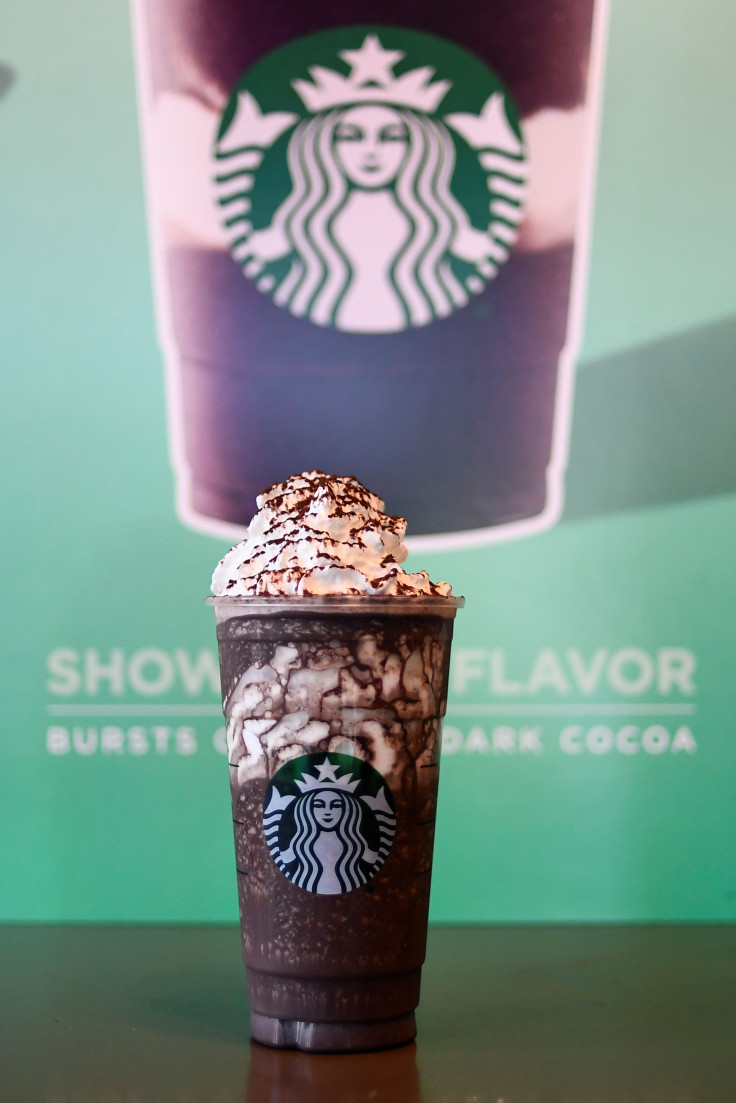5 Times When Starbucks Was Legally Challenged: Florida Woman Gets $100,000 After Hot Drink Spills On Her

A hot-coffee lawsuit cost coffee giant, Starbucks, $100,000 on Thursday after a Florida woman, Joanne Mogavero, claimed in a lawsuit she received first and second-degree burns in 2014.
Mogavero's lawyers argued Starbucks should provide a warning to customers the lids of its coffee cups could pop off, which is what happened with Mogavero that injured her three years back, reports said.
In 2014, Mogavero received a cup of coffee from a barista at a drive-through outlet in Jacksonville, Florida. As she was passing the hot drink to her passenger, the lid popped off and the 190-degree drink spilled on her lap, which left permanent scars on her body, BBC reported.
Read: Starbuck's Worker Criticized For Writing 'Fat' On Schoolgirl's Frappucino
However, it is not the first time the coffee giant faced legal challenges. From slightly overpriced breakfast sandwiches to discriminating against people with disabilities, it has been embroiled in several cases.
Here are five of the lawsuits against Starbucks.
In September 2011, Starbucks was involved in a lawsuit claiming a hidden camera was in the bathroom of one of the coffee giant's outlet in Washington D.C. The camera was allegedly videotaping a five-year-old girl who was using the unisex toilet, reports said.
However, a representative for Starbucks said the company had acted in compliance of their policy which puts emphasis on safety of its customers and employees.
In July 2013, 12 customers had filed a lawsuit alleging employees at two of the coffee shops in New York City refused to serve them because they were disabled, reports said.
"The company is discriminating against deaf individuals by refusing to serve them coffee because they are deaf, making fun of the way they speak, attempting to eject them from their stores, and making false allegations against the police," the lawsuit, filed on July 10 in the United States District Court in the Southern District of New York, stated.
Starbucks had responded to the lawsuit with a statement on its website. It said: "We want Starbucks to be a place where deaf people want to work and visit. We strive to provide a Starbucks experience that is culturally sensitive and inclusive of deaf etiquette..."
In July 2015, a Utah woman, Cheryl Kingery, had filed a lawsuit against the coffee giant and demanded more than $2 million. She claimed she drank a coffee in July 2012 at a Starbucks in the northern Utah city of Clinton. The coffee allegedly contained a cleaning solution, according to Fox 13.
Kingery's attorneys wrote in the lawsuit the drink had burned and damaged Kingery's mouth and esophagus, which resulted to severe nerve damage and chronic burning mouth pain.
The coffee conglomerate reportedly took the claims seriously and company spokesperson Laurel Harper had said in response to FOX 13's request for comment: "The safety of our customers is our highest priority. We take this obligation seriously and are investigating Ms. Kingery’s claims."
In June 2015, an internationally known Brooklyn muralist, Maya Hayuk, sued Starbucks claiming that she refused to work with the coffee giant but the company still went ahead and used her graphics, which looked similar to some of her work, to promote its mini Frappuccinos, the New York Post reported.
A Starbucks spokesperson had said: "We are aware a complaint has been filed, and we are investigating the allegations.”
In August 2016, a group of California residents filed a lawsuit against the coffee giant, after discovering several Los Angeles-area Starbucks were charging 20 to 30 cents more for breakfast sandwiches than the advertised price.
The lawsuit was settled after Los Angeles Superior Court Judge Lisa Hart Cole granted plaintiff Sarah Martin's motion for preliminary approval of the deal. The decision resulted to Starbucks refunding 25 cents each to the California consumers who purchased the breakfast sandwiches with Starbucks Rewards accounts.
It also gave a 25 cent gift card to any additional consumers who could provide proof they purchased the sandwiches during the period mentioned in the class action, law360 reported.
© Copyright IBTimes 2024. All rights reserved.





















